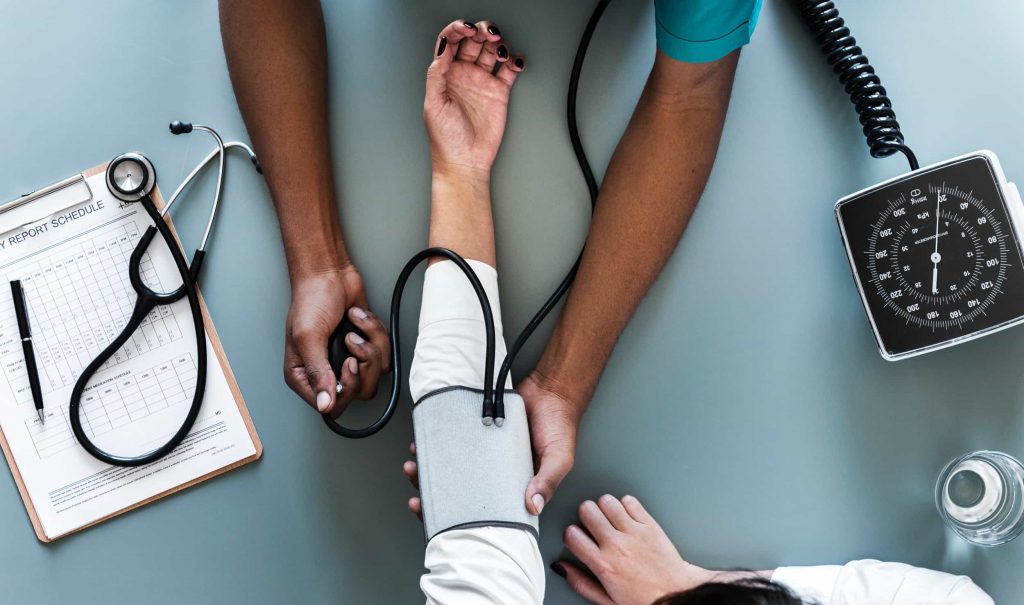
Visa applicants and members of the family unit will need to demonstrate they meet the health requirement, this can include newborn babies. We have various relevant resources, including:
- Determining if one is required to undertake health examinations (see here);
- How to meet the health requirement (see here);
- What one can expect in their health examination appointment (see here).
When does the health examination not apply?
Depending on your individual circumstances, your newborn child may not be required to undertake health examinations. Circumstances include:
- If they are a certain passport holder from a low risk country (see here);
- If they were born onshore to a temporary or permanent visa holder (until the parent applies for a new visa);
- If they are included in the application for a specific visa subclass, like the Maritime Crew visa (subclass 988), the Temporary Work (International Relations) visa (subclass 403) in the Privileges and Immunities stream, and Special Category visa (subclass 444).
If your newborn child does require a health examination, the process is detailed below.
Who does the concession apply to?
Undertaking health examinations can be an overwhelming experience for both the newborn child and parents/guardians. As a concession, children under 6 months old can be assessed “on the papers” by a Medical Officer of the Commonwealth, instead of attending of a physical examination. This applies regardless of where the child was born, however, they must be in Australia for this concession to apply. Children who are offshore must attend a Panel Physician to complete their health examinations.
Note that this concession will apply to all children born onshore to Unauthorised Maritime Arrivals (“UMA”) who hold a Temporary Protection Visa or Safe Haven Enterprise visa (subclass 790). No further tests are required for children born onshore to UMAs unless they have travelled overseas to a higher TB-risk country for more than 6 months.
“On the papers” assessment
To request for an “on the papers” health assessment to be undertaken, you will need to provide the visa processing officer with the following documentation:
- a report or letter from your child’s treating general practitioner, paediatrician or obstetrician in Australia confirming they have examined your child; and
- a signed eMedical consent form (parents/guardians can sign on their behalf).
The following details of their health and development will need to be provided in the medical report/letter, including (but not limited to):
- general health;
- vision;
- hearing;
- growth parameters (height, weight and head circumference);
- and if relevant, chromosomal abnormalities, physical or intellectual impairment, or conditions that may result from maternal-foetal or maternal-neonatal transmission (for example, TORCH syndrome or HIV infection).
The above documentation must be received by the Migration Medical Services Provider at least 5 days prior to your child turning 6 months of age to enable sufficient time for processing. Should they receive the documentation after this time, the child will need to undergo the standard onshore medical examination process with Bupa Medical Visa Services.
However, should your child be over 6 months of age near the time of decision, the Department may also request that your child undertake the standard onshore medical examination as the concession will no longer apply.
Medical examination
Should your child need to undergo a physical health examination, you can expect that the assessment will include height and weight measurements, blood pressure measurement, eye tests and/or blood samples. The medical practitioner will review their medical history and perform a physical examination. This can include listening to their heart and lungs through a stethoscope and pressing on various body parts to including their stomach, neck and underarms. The medical practitioner will also need to examine their eyes, ears, nose, throat and mouth. More tests and procedures may be applicable, depending on your child’s medical history and circumstances of the visa application.
The results from the health examinations will be transmitted electronically to the Department after completion.
Any questions?
If you have any questions about health examinations for your baby, feel free to contact us by email at [email protected] or phone +61 3 9016 0484.
This document does not constitute legal advice or create an attorney-client relationship. Please consult an immigration professional for up-to-date information.


Any officia document / form from immi to take to the GPs fill? Or it can be a letter from the GP with the information mentioned on the post?
I called immi department and they requested me to contact the processing department to get the forms for it.
But it seems that I’ll have no response from them.
Hi Riocardo,
You should complete this form in front of the GP: https://immi.homeaffairs.gov.au/form-listing/forms/26.pdf
The e-medical consent form is also available here: https://immi.homeaffairs.gov.au/help-support/tools/emedical/personal-information-emedical
Kind regards,
Hannan Tew